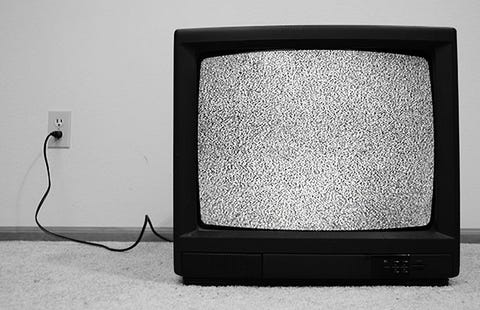What Does Constant Ringing in Ears Mean
What Does Constant Ringing in Ears Mean
Imagine hearing a ringing, buzzing, or humming—or sometimes all three—that never stops. For the following 12 women with tinnitus, that's just a part of daily life. Although some treatments may help, there's no real cure. Here's a look at what it's like to have this disruptive condition and how patients have learned to cope. (Looking to take back control of your health? Prevention has smart answers—get 2 FREE gifts when you subscribe today.)
"I have had tinnitus my entire life, though I wasn't diagnosed until my early 20s. The doctor told me to go home and learn to live with it, and to find good in it. I happened to be a vocalist at the time, so I found out what key my tinnitus was in; listening to it helped me with my pitch. Sound therapy also helped: I trained my brain to listen to music instead of the tinnitus. For a while I functioned very well, but when I was rear-ended in a motor vehicle accident in the 1980s it was exacerbated by 100%. In 2008 I was in another car accident, and that really set me back. I could not eat, sleep, or concentrate; the noise consumed me. I went back to scratch trying to figure out how to function. I sought out a support group from the American Tinnitus Association, and they referred me to a doctor who specializes in tinnitus. Because I also have some hearing loss, he suggested that hearing aids might help with the tinnitus. The day I put them on I found so much relief."
—Melanie West, Phoenix
MORE:16 Highly Effective Migraine Solutions

Robert Llewellyn/Getty Images
"One night I was trying to fall asleep and it sounded like when you put a seashell up to your ear—that's the sound I've been hearing for the last 12 years. I have six children, so there's rarely a time where I'm sitting around listening to it; it's drowned out by life itself, which I'm grateful for. But sometimes when one kid is talking, another is listening to music, and another is watching a video it's just too many layers of sound. I'm also deaf in one ear, so anywhere there is a lot of noise, like an auditorium or event, I become a lip reader; I cannot hear. It's so frustrating."
—Elizabeth Nestos, Glenview, IL
"I was diagnosed this past winter at the age of 55. When my doctor told me I would get used to it I was more than dismayed. My sound is a hiss. It is always there. The only thing to do is ignore it. It doesn't really interfere with anything, but it's super annoying. Isn't aging fun?"
—Stacy Geisinger, Bedford, NY
"I was diagnosed with tinnitus and profound hearing loss in 1983, when I was 9 years old. Growing up with tinnitus I felt very alone; we didn't have the Internet or support groups like we do today. There weren't many who even knew what tinnitus was. I was fortunate enough to have a caring ENT who helped me learn how to use mind and body to calm my response to the sounds. I hear five distinct sounds: a high pitch ringing, which gets louder as the other tones fluctuate; an engine noise (like a motorcycle revving up); a vibrational tone (this starts right before bed and makes my head and ears feel like they're moving or on a machine that's vibrating); a seashell sound; and a buzzing. Gradually, I've learned to accept the sounds rather than fear them. In 2012, I received a cochlear implant for my right ear, and it was a blessing for my tinnitus, although my left ear still hears all five tones of tinnitus. I have recently started using mindfulness meditation to help cope."
—Jodi Goodenough, Liberty, UT
"I'm an audiologist, so I knew what tinnitus was before I had it. One day I asked my husband to help me find a cricket in the room and he said he didn't hear anything. Within about 30 minutes I went from looking for one cricket to looking for hundreds. Back then, the most we knew about tinnitus was 'masking,' so I started using other sounds minimize the tinnitus. That worked quite nicely because I was able to find background noises that were soothing and comforting to me. Over time I also implemented strategies that help your brain habituate to the sound; I now teach that technique to patients. If you don't currently have tinnitus, you should know that most cases can be prevented. It's often as simple as protecting your ears, which is why you should always wear earplugs when mowing the lawn or going to a concert."
—Norma R. Mraz, AuD, Roswell, GA
MORE:60-Second Fix For A Stiff Neck
"I first noticed the ringing in my ears in my late 30s; I am currently 67. In the beginning it wasn't constant, and it was only noticeable when my surroundings were quiet. I have always attributed it to the summer between my sophomore and junior year of college when I worked on the line in a glass factory packing bottles; it was a very noisy environment, and when I got into my car after work I couldn't hear if the engine was on or not for several minutes. By the time I was formally diagnosed in my 50s, my tinnitus was constant. At that point, I just wanted to be assured that I wasn't dealing with an acoustic neuroma or brain aneurism, or something equally as scary. After all these years it can still be annoying, because it sounds like a cross between cicadas and high-pitched static. But I've gotten pretty good at ignoring it."
—Barbara L. Glenn, Largo, FL

Vlue/Shutterstock
"I have lived with tinnitus since the fall of 2009, when I was struck by a 1,000-pound tree limb. It broke my neck and caused a ripple effect of other problems. Some of them went away, but the tinnitus stayed. At first I had reduced hearing on my left side; everything seemed muted, as if my ears were clogged with water or needed to pop. It gradually changed within a few weeks to a constant ringing, almost like the static sound of a TV. I have learned to live with it."
—Heidi Siefkas, Fort Lauderdale, FL
"I was first diagnosed in January 2013 at the age of 43 after experiencing sudden hearing loss in my left ear. I hear white noise in my left ear 24/7 along with several random sounds that come and go. Imagine listening to a radio station that's not tuned in—that's what I hear all day, every day. Noise, sodium, and stress seem to make my tinnitus louder. I work in a basic skills classroom at an elementary school so avoiding noise is impossible, though I try to wear ear protection. Sleeping with a fan turned up helps me at night. Tinnitus has affected every part of my life, and I have bouts of anxiety that I've never had before. I'm just starting to go to concerts and sporting events again, because life must go on."
—Kristi Strom, Lebanon, OR
MORE:10 Silent Signals You're Way Too Stressed
"I developed tinnitus in my early 20s. When I first talked to a family doctor about ringing in my ears, he basically shrugged it off and said to stop listening to loud music. Certain prescription drugs make my tinnitus worse. I was on Wellbutrin (bupropion) earlier this year, and one evening the tinnitus was so loud that I basically had a panic attack. You can't get away from it. It is unrelenting. It never stops. You must seek out distractions for your mind so that it slides into the background instead of overwhelming you."
—Diane Pollard, Montclair, VA
"When I developed tinnitus 5 years ago, I wanted to commit suicide. The only way I can describe it is being in a dark hole and having the fear of never, ever getting out of it. It causes horrible anxiety. I work with the American Tinnitus Association, so I know that a lot of people feel the same way, and some do commit suicide. I'm lucky because I found Dr. Michael Robb, an otolaryngologist who's also a neurologist; he literally saved my life. By introducing me to sound therapy he helped me become happier and healthier; I hardly ever notice the tinnitus anymore. Millions of people have tinnitus, but they don't know how to talk about it or treat it, so they become hermits. There is help."
—Melissa Dupree, Scottsdale, AZ
MORE:Are You Bummed Out...Or Depressed?
"Before hearing aids I stayed busy—let's just say my house was spotless. I always had some type of noise on, like the radio or TV, and being outside also helped. As my hearing gradually decreased, the tinnitus became louder. I hear it in my whole head; it sounds like crickets chirping intermixed with high-pitched whistling. I bought hearing aids in 2004, and they helped me tremendously. Exercise helps also because it's a stress reliever."
—Susan King, Waterloo, IL
"My tinnitus journey most likely began with a horseback riding accident in October 2009. For months afterward I noticed mild noises. Then in April 2010, I had another accident on horseback; I hit the ground hard, causing whiplash. A month later, I suddenly awoke with a very loud ringing. For a while I kept it secret because I was embarrassed and afraid I would be laughed at. I couldn't sleep or eat; I became an emotional wreck. When I confided in my doctor, he asked why I was making a big deal out of something that wasn't going to kill me. The ENT I saw next was kinder and gentler, but he said there was no cure or treatment. I was distraught, and when my best friend saw how thin, pale, and frail I had gotten she cried. I eventually found a doctor who introduced me to tinnitus retraining therapy and suggested combining it with hearing aids and sound generators. Since then, my quality of life has gotten enormously better."
—Connie Decker, Greenville, SC
Celia Shatzman Celia Shatzman is a Brooklyn-based writer who has penned stories on topics ranging from fashion to travel to celebrities, entertainment, beauty, finance, health, and fitness.
This content is created and maintained by a third party, and imported onto this page to help users provide their email addresses. You may be able to find more information about this and similar content at piano.io
Source: https://www.prevention.com/health/a20436980/this-is-what-its-like-to-have-constant-ringing-in-your-ears/
Posted by: wereinginge1982.blogspot.com
0 Response to "What Does Constant Ringing in Ears Mean"
Post a Comment